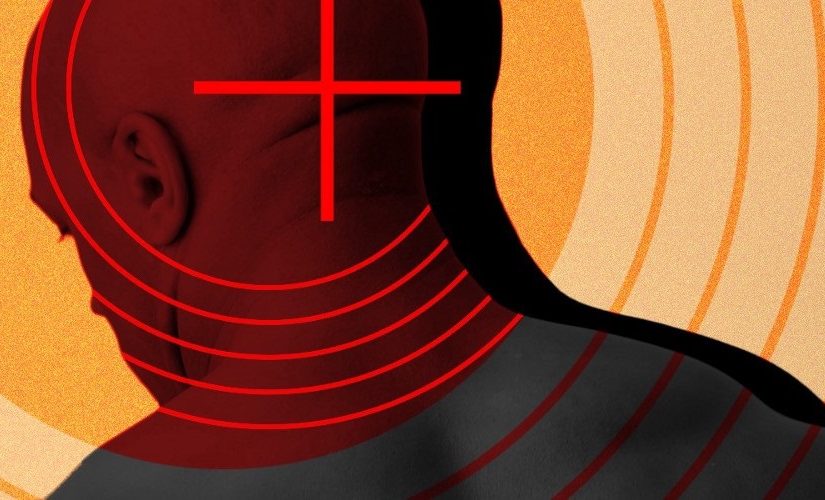Mozambique: People still in panic after terrorist raids in Memba - AIM report
“They came to cut my head off” – Living in fear

File photo
Persecution of bald persons is motivated by beliefs and rituals which use bones and other parts of the body.
Martinho Filhinho lowers his sweater to show a scar over his shoulder, a few inches from his neck. It was made with a machete in the dead of night by strangers who came into his house while he slept. “They came to cut my head off because I am bald.”
Martinho, aged 58, still has hair, but not enough to disguise his baldness. He is the latest victim of a series of assaults on bald people and desecration of graves in Zambezia since late 2016.
Five resulted in death. Two occurred in villages located in the district of Milange where Martinho lives. In two other cases the bodies were beheaded and the heads disappeared.
Bald people live in fear, and not even the dead escape. Since the beginning of the year, 15 graves have been desecrated in the district and skulls stolen. One of them, wrapped in cloth at the Milange police station, is evidence in a case against a 31-year-old man.
A police source says that, according to evidence and testimony, persecution of bald persons is motivated by beliefs about bones or other parts of the body used in rituals which supposedly attract wealth.
The same explanation is given by Zambézia provincial police spokesman Miguel Caetano, who classifies the situation as “a new phenomenon”.
Everything indicates that these cases are related to superstition, like acts of violence against albino people, whose organs are used as good luck charms.
The suspect arrested in Milange says that he worked in agriculture, until a friend encouraged him to exhume the bones of bald people. He was supposed to get the equivalent of 80,000 meticais (EUR 1,200) in Malawian kwachas for the skull, but it didn’t please the buyer, who rejected it.
How he got hold of the skull, who the buyer was and for what purpose, he did not explain. These details are reserved for his friend who is still at large.
Also Read: 15 jailed over desecration of graves and hunting bald men in Milange
Amado Selemane, 52 years old, covers his bald head under an authority beret, part of the uniform of the community leader of Tambone village halfway between Milange and Mocuba, but this offers little security.
Amado is Martinho Filhinho’s nephew and his uncle’s experience shows that there’s no point trying to hide baldness.
“People know me, they know I am bald,” says the uncle, like Amado and another family member, “We’re three bald guys.”
Baldness isn’t contagious, but fear is, even among those who have hair.
“This scenario scares everyone,” especially after what happened in Tacata in May, says Pedro Varela, 49, the first secretary of the Tambone circle.
“A woman woke up to find the headless body of her husband beside here.”
She put up a great screaming and roused the neighbours, who managed to catch and truss up one person. Another fled and was later arrested, but the bald head never surfaced.
Mário Macassa describes the climate of fear as “another type of war”, comparing it to the fear experienced by the population in the past due to clashes between government troops and the armed wing of the Mozambican National Resistance (Renamo, the main opposition party).
“I’ve heard of bald men carrying knives, and others staying up at night,” in some villages, he says, organising themselves to keep watch until sunrise.
To counter the supposed superstition, the administrator has sought allies among traditional healers.
“It’s a way for the perpetrators to feel threatened,” he says. And it has worked.
Once, in the village of Majaua, “an individual went to ask a healer for a purification for having desecrated a grave,” he recounts. The police were tipped off, and he was detained.
Sonte Guamila, one of the custodians of a cemetery outside Milange, recalls a recent funeral in which an open grave was discovered.
“It was the grave of a person who had died in an accident,” but not a bald person. “The bald man was in the next grave,” and the robbers had made a mistake, he maintained.
The population is up in arms and the desecration of cemeteries is unanimously condemned, but administrator Mario Macassa thinks that the situation is calmer now. He himself is going bald but is unafraid, believing that community response will put an end to the persecution of bald people.
Also Read: Traditional healers grapple with explosive problem, express concerns over foreigm “cheaters”












Leave a Reply
Be the First to Comment!
You must be logged in to post a comment.
You must be logged in to post a comment.